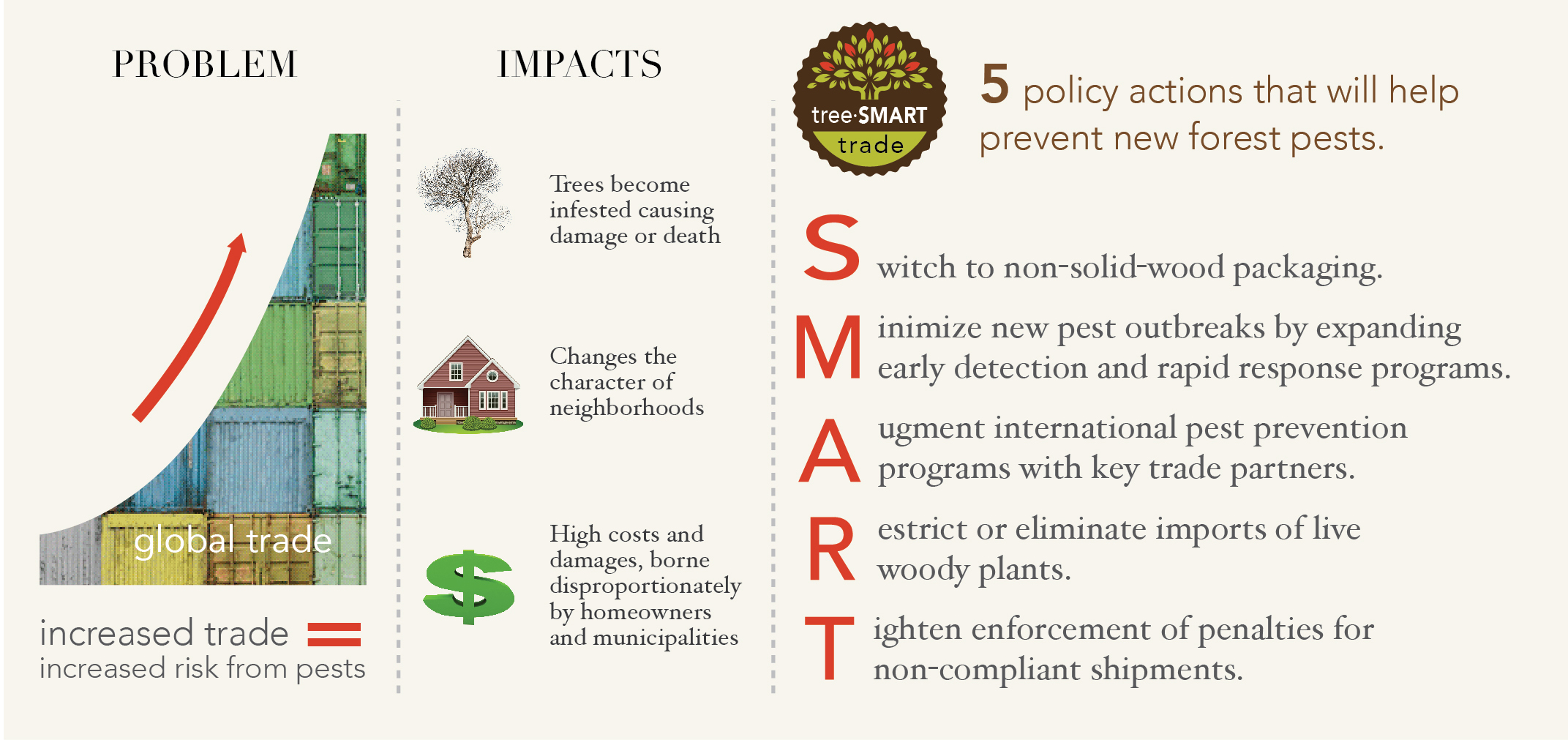By Megan Feeney, American Forests
Tree-SMART Trade is a series of policy initiatives that are currently being developed in order to combat the perilous effects of invasive species on native trees. These suggestions have originated from the work of a group of scientists within the field of forestry in an attempt to address threats to tree health.
Studies have shown that there is a direct link between the increase of trade and the expanding impact of various invasive species. This has been a continuous element associated with trade in the United States, dating back to the nation’s founding. With spikes in international trade over the past several decades, specifically trade with Asia, wood borer insects, such as the Asian Long-Horned Beetle, have been on the rise.
While trade is often accepted as a positive element to global relations, cultural exchange and economic opportunity, trade is having an increasingly negative impact on forest health. As native trees to North American did not co-evolve with these imported pests, they lack the necessary defense to combat these new species. Local governments and homeowners are then forced to accept the tremendous economic burden associated with invasive pests. From aspects of tree removal, decline in property levels and loss of health benefits, the troubling impact of imported species impacts all levels of society.
Invasive species, such as the Emerald Ash Borer and White Pine Blister Rust, continue to devastate the health of forests in their respective regions. The Emerald Ash Borer, which is unintentionally imported through solid-wood packaging, has wreaked havoc on cities, such as Cincinnati, causing a tremendous reduction in the area’s tree canopies. Blister Rust, an imported fungus, has proven to be quite damaging to the health of the white bark pine, which is the first tree eligible for protection under the Endangered Species Act. It is important to note that blister rust has been an ongoing issue, one which American Forests has been attempting to address for more than a century.
Tree-SMART Trade attempts to address a variety of forestry concerns by building upon current programs that target invasive species. These area’s consist of rethinking how commodities are packaged, addressing species outbreaks quickly, working with trading partners to address the issue, limiting the number of live woody plants allowed into the country and instituting penalties for companies that fail to comply.
While American Forests does not concentrate on aspects of international or domestic trade, it is important to recognize the impact that these practices have on our nation’s forests, urban greenspaces and communities. Tree-SMART Trade’s initiative to reduce the spread of new pests through methods of early detection and programs focusing on rapid response measures coincide with American Forests’ mission in forest conservation.
Lovett, Gary M., et. al. “Nonnative Forest Insects and Pathogens in the United States: Impacts and Policy Options.” Ecological Applications, 26.5 (2016): 1437-455.
